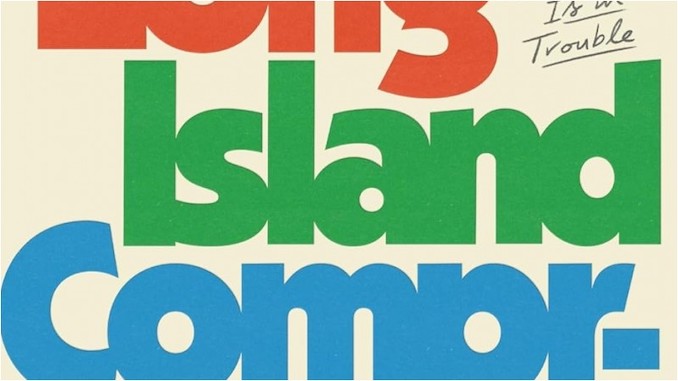Long Island Compromise Feels Your Pain

A few days before my review of Taffy Brodesser-Akner’s sophomore novel, Long Island Compromise, was due, the satirical news geniuses over at The Onion ran the story “Report: It Not Fair Other People Get To Enjoy Their Lives.” Coupled with stock photos of seemingly gleeful people laughing with friends and taking selfies on mountain tops, the piece’s message is meant to imply that we’re all miserable. But other people seem less miserable than you, specifically, because they (or at least the “they” that is promoted on their social media feeds) live in a world where today is a perfect day and so is the one after that and they never think about dying.
With Long Island Compromise, The New York Times Magazine journalist Brodesser-Akner doesn’t just aim to prove that (of course) no one lives in a Barbie movie-esque paradise. Instead, she argues that humans are inherently likely to hold on to their trauma, whether they’re the types to do the work with therapy, support groups, medication, and journaling or the sort that pushes the inciting event to the backs of their subconscious. In fact, the greatest trick that trauma ever pulled may be that it proliferates within our psyches to the point that we don’t even know it’s there. In an essay for The New York Times Magazine written to promote her book, Brodesser-Akner concedes that “by the time I was done with it, it was clear to at least the people who wrote the marketing copy for it, but somehow not to me, that it was a book about … the legacy of trauma.”
The impetus for the story in Compromise is this: Brodesser-Akner’s dad’s friend Jack Teich was abducted from his Long Island driveway one rainy November 1974 night. After a ransom was paid, he was eventually released without any major physical harm done. Jack and his wife and children went on to live a seemingly normal and prosperous life while also rarely ever talking about these events. (His own daughter, who was born after the kidnapping, didn’t even know about it until she was 13 and happened to be reading Caroline B. Cooney’s 1990 young adult mystery novel The Face on the Milk Carton). But the kidnapping seemed to haunt all their lives in different ways. Security systems were installed, of course. But Jack’s life began to include less obvious ticks, like moving to a house near a police station, maintaining a website about the case, and obsessively locking his doors. Teich also published his own book about the ordeal and its aftermath in 2020.
But in Compromise, Brodesser-Akner seems to be looking at generational trauma. This is a term we, especially those of us who are Jews or members of other marginalized groups, talk about a lot. How did my great grandparents’ experiences escaping the Cossacks live on in their DNA and bloodstreams until they became a part of my own? Does my own diagnosis of generalized anxiety disorder and panic-attack-inducing fear of death have anything to do with my ancestors’ strife? Compromise doesn’t always go that far back in history; it mostly concentrates on the now-grown children who lived in a house along with The Thing That Shall Not Be Discussed; a dybbuk, or evil spirit, that haunts and torments them all. Are we ever truly safe even as we compromise our culture and assimilate?
Compromise focuses on the fictional Fletcher family, wealthy Long Islanders whose patriarch Carl was abducted from his suburban driveway one random day as he left for work. No one knew he was missing until he didn’t come home later that day, causing his powerful mother Phyllis, his pregnant wife Ruth, and their two young sons to exhaust both themselves and all resources at their disposal until he was recovered. And Carl is rescued; found intact with nary any of the maiming and severed body parts his ransomers threatened would happen. Emotionally, though, he was never the same. He spends the rest of his life in a sort of shell shock.
-

-

-

-

-

-

-

-

-

-

-

-

-

-

-

-

-

-

-

-

-

-

-

-

-

-

-

-

-

-

-

-

-

-

-

-

-

-

-

-








































